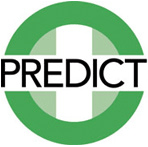Involving Consumers in your Research
Over the next few months Cate Wilson, Simon Craig, Marietta John-White and other project leads will contribute a series of articles outlining how we have involved consumers in the Million Minds research program, what we have learned and how we might improve things in the future.
Article 1: Recruiting a consumer advisor group for the Kids are not OK
Background….
When the “Kids are not Ok” program of research was funded by the Medical Research Futures Fund, we felt that it would be critical to get consumer advisors involved in the development, design and ongoing roll-out of the research for the 5 key project areas:
(1) Delphi Study – An email survey of staff, patients, carers and relevant community services eg. police, school counsellors. to prioritise research questions and agree on core outcome measures for future studies.
(2) Retrospective Study – A review of medical records
(3) Prospective Observational Study – Enrolment in the ED and follow-up for 12 months
(4) Safety Planning for Suicidality – We planned to conduct a trial of a safety planning program supported by an app and telephone support for patients who present to the Emergency Department at risk of suicidal crisis.
(5) Treatment for acute severe behavioural disturbance: which are the best medications? Randomised clinical trials of oral and IM medications
What came next….
We developed a flyer to assist with recruitment which outlined:
- what the program of research aimed to do
- what our consumer advisors would be asked to do
- what skills or experience would be helpful
- what the time commitment would likely be
- where meetings would be held (all changed since COVID!)
- what financial support would be offered ($50 per hour)
- how to apply/express interest
How did recruitment work….
- Initially, we asked a range of clinicians in different types of clinics/ward areas where children with a range of mental health conditions were seen, to approach potentially suitable people i.e. Parents or youth of 18 years plus. Prior to this, we had met with the clinicians to explain what we wanted and to equip them with the flyers. Then we kept in touch to see if they had approached anyone.
- Response was slow but after 4 weeks we had a carer consultant refer us a potential consumer. Two of us met with our first consumer in the hospital café and we had a casual chat to explain more about the role, answer questions and generally assess that we both understood each other. It went well and after the meeting we offered the position formally via an email and it was accepted.
- We had not received any other referrals from the clinicians – so we asked our first consumer about how we might recruit some others? This was a stroke of genius as she put the word out to other people and on closed facebook groups which we otherwise would not have had access to.
- More consumers approached us and again we did coffee (pre-COVID times!) or talked over the phone. We recruited three more people into our consumer advisory group who provided a range of experiences and skills.
- There were a couple of people who approached us but did not meet our requirements in terms of experience (of MH), or they later felt they could not commit.
Preparation and training….
Our organization required our consumers to complete a confidentiality agreement. We also explained the confidentiality agreement to them and they were happy to comply.
We got the group together for face-to-face training (when this was possible) and in a 1 hour meeting we covered the following:
- description of the funded projects
- how Consumer Advisors would contribute
- research ethics and good clinical practice basics
- how to contribute effectively in meetings
- how to review documents such as PICFs
- developing a brief summary of your story that you are comfortable to share
- remuneration process
- what to do if there are problems or concerns/who to go to
- any other questions
Some links and pdfs were also provided to support the above topics.
The consumers were remunerated for their participation in training.
Since then…..
- We contact the group when we want their involvement in specific projects.
- We do a yearly newsletter for the consumer group that outlines progress of the whole research program.
- We have asked each member to complete a confidential, brief survey to evaluate how they are experiencing their involvement in the research.
What we learned about setting up a consumer advisor group….
- It takes time – ideally start when you are thinking about the grant and get input to your aims, indicators and research priorities too!
- Consumers are fantastic at recruiting other like-minded consumers!
- Try and recruit at least 4 – 6 people as often 1 or 2 people can’t make it to a specific meeting.
- Ensure you budget adequately for remuneration in your grant.

